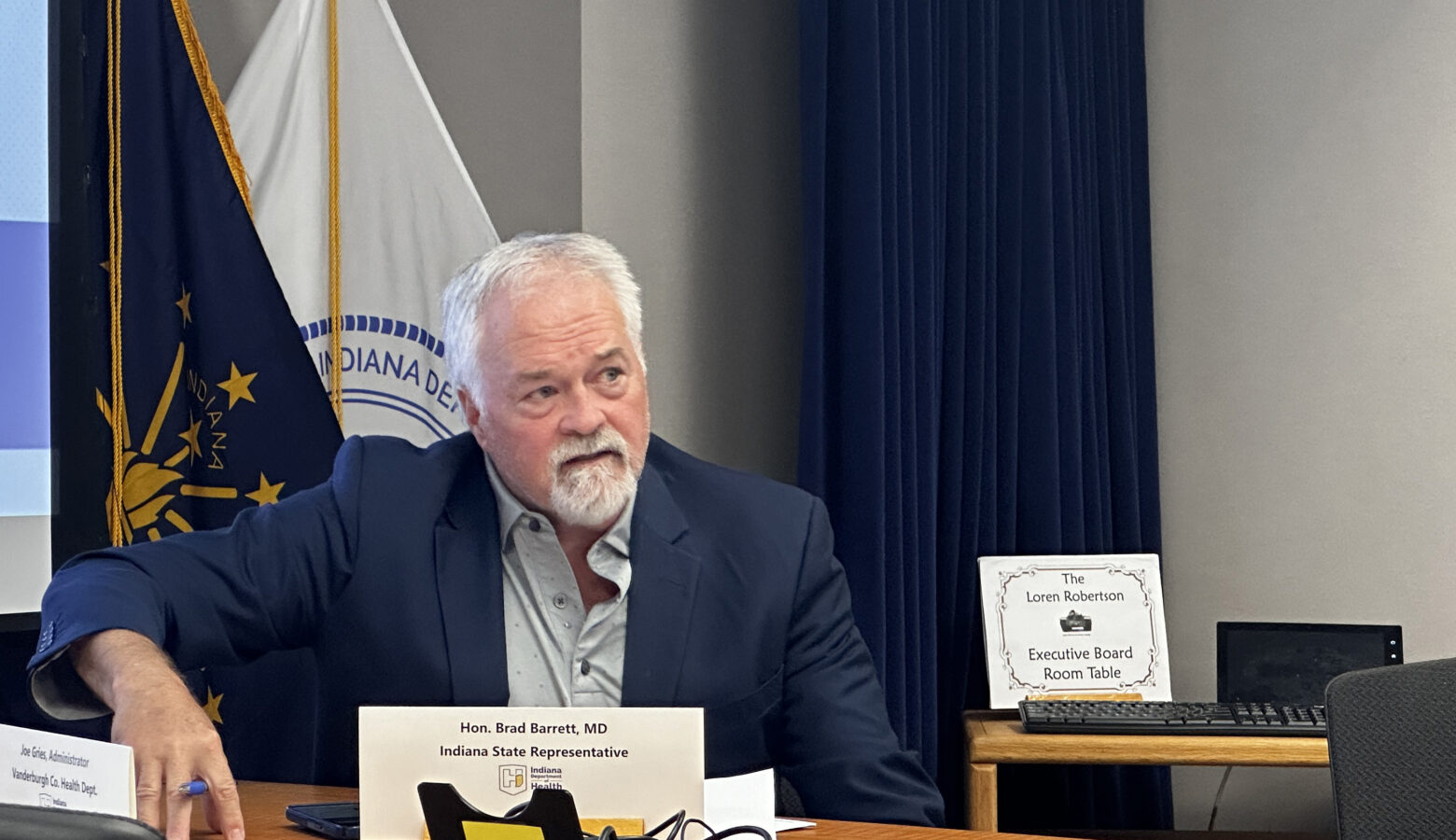‘Comprehensive’ health costs plan sent to governor despite access to care concerns

Lawmakers approved the final version of a “comprehensive plan” meant to address health care costs in Indiana. The legislation now heads to the governor’s desk, despite concerns that some of the policies could limit access to quality health care.
House Enrolled Act 1003 includes a variety of policies targeted at different areas within the health care industry, including a policy that clarifies Indiana’s current site of service language. Lawmakers said the state hasn’t had the information needed to implement what is currently in code — but this bill is supposed to fix that.
Rep. Brad Barrett (R-Richmond) said finding a landing spot on the site of service language took the entirety of the legislative session. But it allows lawmakers to implement a policy that was passed two years ago.
“At the end of the day, there was no change in the policy that was passed two years ago,” Barrett said. “We were simply stuck with clarifying and getting to a point of implementation. We had kind of empowered the [Indiana Department of Health] to do that in the rulesmaking space, but found that that was not possible to do.”
The measure requires large nonprofit hospital systems to submit a complete list of facilities, including when a new facility opens or closes.
Rep. Maureen Bauer (D-South Bend) said this policy, along with many others in the bill, put additional administrative burdens on hospitals that are already struggling. She said the bill takes the wrong approach.
“It doesn’t guarantee that the hospitals will have to pass on any cost savings to the user, to our constituents, to the patient,” Bauer said.
Bauer said lawmakers should be cautious of placing more burdens on hospitals. It could result in the loss of vital services, like obstetrics care. She said this can be especially harmful for rural communities.
The final version of the bill also includes a policy that dealt with physician contracting that was previously removed by the Senate. The bill now prohibits health provider contracts from containing provisions with the intent to limit competition.
Join the conversation and sign up for our weekly text group: the Indiana Two-Way. Your comments and questions help us find the answers you need on statewide issues, including our project Civically, Indiana and our 2025 bill tracker.
Barrett said the language was removed due to confusion in the Senate, but lawmakers were able to address those concerns.
“It really helps to provide for a more competitive marketplace in terms of negotiations between insurance and hospitals,” Barrett said.
Rep. Chris Campbell (D- West Lafayette) criticized the bill for limited negotiations in other areas. The bill sets limitations on the physicians fee schedule, which Campbell said keeps hospitals in the current one.
“By locking hospitals into current physician fee schedules, the General Assembly is essentially negotiating these contracts for insurers moving forward,” Campbell said.
HEA 1003 also gives some additional privileges to Indiana’s Medicaid Fraud Control Unit. The original bill would have granted the unit housed under the attorney general law enforcement power, but the latest language doesn’t give it that ability.
It gives the attorney general the ability to enter a data sharing agreement with certain state departments, including the office of the secretary of Family and Social Services, Bureau of Motor Vehicles and Department of Workforce Development. Lawmakers said the goal is for that data to be used to address Medicaid fraud.
Barrett offered the example of how the attorney general’s office could use the data sharing agreement with the BMV.
“In the BMV space, like, is it a Medicaid recipient?,” Barrett said. “What’s the value of the car? Is there an $80,000 car involved? Where’s their address? What’s the correct address of service?”
However, Medicaid Fraud Control Units are not allowed to investigate fraud committed by Medicaid members based on federal statute. In Indiana, that responsibility belongs to FSSA, according to the director of Indiana’s unit. The Medicaid Fraud Control Unit is responsible for investigating provider fraud, patient abuse and neglect in Medicaid facilities, as well as the misuse of a recipient’s funds or property by a provider or health care facility.
HEA 1003 was a part of the House GOP’s priorities for the 2025 legislative session.
Abigail is our health reporter. Contact them at [email protected].


